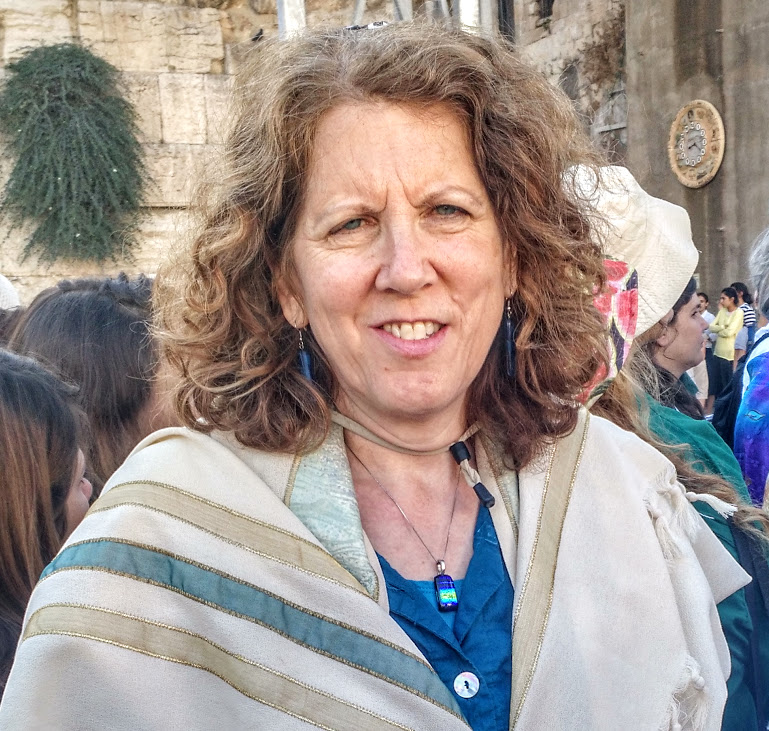See. Re’eh. Much of Sefer Devarim instructs us to listen—Shma. Listening is one important way that people understand and empathize with the stories of others.
When we hear or read these from afar, we feel great empathy and outrage. But in our portion, the mitzvot we are called to fulfill require that we see life’s pain with our own eyes as it were—that we witness that pain for ourselves. Just as Moshe had to witness the ever-burning bush for himself and the pain of the Israelites for himself before he could truly hear God’s divine call, we, too, are enjoined to open our eyes and apprehend how broken our world truly is.
There is no way that I could fully understand the meaning of slavery in the Florida tomato fields until I saw the Modern-Day Slavery Museum. The image of people chained inside a semi-trailer, unable to escape their oppressive work and debt, was chilling. Like many #tomatorabbis, I was profoundly moved by the migrant workers I met in Immokalee, Florida: their courage, their fortitude, and their shared commitment to worker justice. I saw and I listened and I began to understand.
And until I visited Immokalee again in May, I could not grasp the Coalition of Immokalee Workers’ phenomenal achievements through empowering migrant workers to take control of their workplace conditions. The CIW has made leaps and bounds to end slavery in the tomato fields in Florida by involving large corporations like McDonalds and Walmart in making growers accountable for abuses. Even the White House has recognized the CIW’s Fair Food Program for their remarkable success. Having met with workers and seen the changes, I now have a close-up view of how this model can work for workers in every field, every dairy, every industry.
What I’ve now seen with my own eyes is that the migrant workers of the CIW have built a system of empowerment that transforms the relationship between farmworkers, farm owners, corporate buyers, and consumers. Worker-driven social responsibility is at the heart of the CIW’s model, training workers to demand and oversee accountability from their corporate partners.
What is worker-driven social responsibility? Many corporations use “corporate social responsibility” to promote what they have determined are ethical practices. By bringing workers into the board room to advocate for themselves, the CIW calls corporations to account for their espoused ethical practices. The New York Times has called the model “the best workplace-monitoring program” in the US.
So we ask, why is Wendy’s the only major fast-food chain to refuse to participate in this ethical and successful venture? Why did Wendy’s move out of Florida altogether, choosing to buy tomatoes from growers in Mexico who are notorious for human rights violations? And more troubling for the #tomatorabbis, why does Wendy’s largest shareholder, Nelson Peltz, a Jewish leader, not care?
When Mr. Peltz reads this week’s portion he will learn that the Torah teaches, “there shall be no needy among you” (Deut.15:4). An ethical corporate leader would live up to this aspiration, as stated in Wendy’s statement of social responsibility. But the Torah does not leave us with that vision, which is still beyond our reach. The Torah follows with “there will never cease to be needy ones in your land, which is why I command you to open your hand to the poor and needy” (Deut. 15:11).
We can’t depend on the corporate leaders to live up to their own words. On this Labor Day weekend, we are reminded that we need the workers, and their allies, to enforce them. In truth, until we get to the future time when there are no needy, we all have an obligation to work as hard as we can to see the needy, to listen to them, to understand their needs, and to be accountable to them.
The Torah presents both a dream of our highest virtues and a gritty account of our most shameful sins. When we actually see the brutal realities and acknowledge how far we are still from our noble dreams, we ought to be enraged. The gap between what is and what we hope for must compel us to act. As this Shabbat is also Rosh Hodesh Elul, we can renew our commitment as the moon renews its light, to bring our world closer to our dreams.
The CIW has met some of its immediate goals. Yet the work continues, building on the aspirational goal of treating all workers with dignity, by including their voices in corporate decision-making. If you haven’t seen it with your own eyes, Re’eh—go to Immokalee with the #tomatorabbis and you will begin to understand.
Rabbi Barbara Penzner serves Temple Hillel B’nai Torah, a Reconstructionist synagogue in the city of Boston, and is co-chair of the New England Jewish Labor Committee. She is also a member of the Faith Working Group of the Alliance for Fair Food, supporting the work of the CIW.

